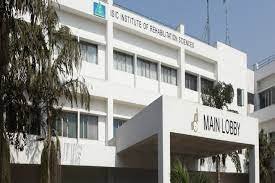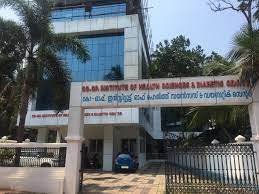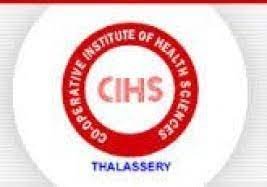MOT in Musculoskeletal offers high demand careers, specialized expertise, competitive salaries, and patient impact.
Future Scope & Benefits: MOT in Musculoskeletal Course
A Master's in Musculoskeletal Orthopedic Therapy (MOT) is a specialized program that equips healthcare professionals with advanced knowledge and skills in the assessment, treatment, and management of musculoskeletal and orthopedic conditions. This specialized degree offers a range of career opportunities and brings several benefits to those who pursue it. In this article, we will explore the future scope and the benefits of obtaining an MOT degree.
Future Scope: MOT in Musculoskeletal Course
High Demand for Musculoskeletal Specialists: The demand for healthcare professionals with expertise in musculoskeletal care is on the rise. An aging population, increased sports and physical activity, and the prevalence of musculoskeletal conditions contribute to the need for specialists in this field.
Diverse Career Opportunities: Graduates of MOT programs have a wide range of career options to explore. These include positions in hospitals, orthopedic clinics, sports medicine centers, rehabilitation facilities, research institutions, and private practice.
Orthopedic Clinics: MOT graduates can work in orthopedic clinics, where they assess and treat patients with various musculoskeletal conditions, such as fractures, arthritis, and soft tissue injuries. They may assist in surgical procedures and post-operative rehabilitation.
Sports Medicine: The field of sports medicine offers opportunities to work with athletes and active individuals. MOT professionals can become part of sports medicine teams, helping athletes recover from injuries and improve performance.
Rehabilitation Centers: MOT graduates play a vital role in rehabilitation centers, where they design personalized treatment plans for patients recovering from surgeries or injuries, helping them regain mobility and functionality.
Research and Academia: Many MOT professionals choose to pursue careers in research and academia. They engage in research projects, publish findings, and educate the next generation of healthcare providers.
Orthopedic Surgery Teams: Some MOT graduates work alongside orthopedic surgeons, assisting in patient evaluations, preoperative preparations, and postoperative care.
Private Practice: MOT professionals can establish their private practices, providing specialized musculoskeletal care to a range of patients. Private practitioners have flexibility in setting their practice areas and treatment approaches.
Public Health Initiatives: MOT specialists can contribute to public health initiatives by promoting musculoskeletal health and injury prevention in communities. They can work with government health agencies on public health campaigns and interventions.
Consulting and Advisory Roles: MOT professionals are often sought after as consultants and advisors for organizations and healthcare facilities looking to improve their musculoskeletal care programs and practices.
Global Health Opportunities: Some MOT specialists engage in global health initiatives, working in underserved or international settings to address musculoskeletal health disparities.
Benefits of Pursuing an MOT Degree:
Specialized Expertise: An MOT degree provides specialized knowledge and skills that set graduates apart in the healthcare field. They become experts in musculoskeletal and orthopedic care.
High Demand: The increasing prevalence of musculoskeletal conditions and injuries ensures a steady demand for MOT professionals. Job security is often high in this field.
Competitive Salaries: MOT specialists typically earn competitive salaries, and compensation can increase with experience and specialization.
Interdisciplinary Collaboration: MOT professionals collaborate with various healthcare providers, including orthopedic surgeons, physical therapists, and radiologists, fostering interdisciplinary teamwork.
Varied Work Settings: Graduates can choose from a variety of work settings, allowing them to tailor their careers to their interests and goals.
Patient Impact: MOT specialists make a significant impact on patients' lives by helping them recover from injuries, manage chronic conditions, and improve their musculoskeletal health.
Research Opportunities: MOT professionals contribute to advancements in the understanding and treatment of musculoskeletal conditions through research projects and clinical trials.
Flexibility: Many MOT roles offer flexibility in terms of work hours and settings, allowing for work-life balance.
Professional Development: The field of musculoskeletal care is continuously evolving, providing opportunities for ongoing learning and professional growth.
Career Advancement: MOT professionals can advance in their careers by taking on leadership roles, pursuing further education, or specializing in specific areas of orthopedic therapy.
Satisfaction: The satisfaction of helping patients regain mobility, reduce pain, and improve their quality of life is a significant benefit of a career in musculoskeletal therapy.
Global Recognition: MOT specialists are recognized globally for their expertise in musculoskeletal care, opening up opportunities for international collaboration and recognition.
 2 Years
2 Years
 Post Graduate
Post Graduate
 Medical
Medical
 Full Time
Full Time





 back
back

